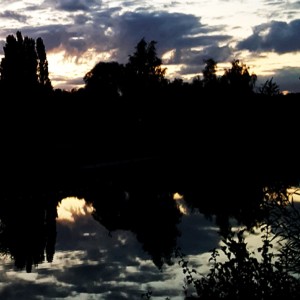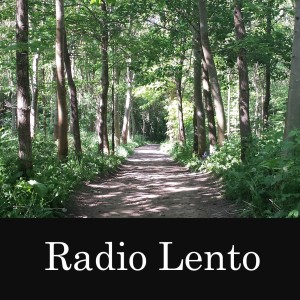
- Podcast Features
-
Monetization
-
Ads Marketplace
Join Ads Marketplace to earn through podcast sponsorships.
-
PodAds
Manage your ads with dynamic ad insertion capability.
-
Apple Podcasts Subscriptions Integration
Monetize with Apple Podcasts Subscriptions via Podbean.
-
Live Streaming
Earn rewards and recurring income from Fan Club membership.
-
Ads Marketplace
- Podbean App
-
Help and Support
-
Help Center
Get the answers and support you need.
-
Podbean Academy
Resources and guides to launch, grow, and monetize podcast.
-
Podbean Blog
Stay updated with the latest podcasting tips and trends.
-
What’s New
Check out our newest and recently released features!
-
Podcasting Smarter
Podcast interviews, best practices, and helpful tips.
-
Help Center
-
Popular Topics
-
How to Start a Podcast
The step-by-step guide to start your own podcast.
-
How to Start a Live Podcast
Create the best live podcast and engage your audience.
-
How to Monetize a Podcast
Tips on making the decision to monetize your podcast.
-
How to Promote Your Podcast
The best ways to get more eyes and ears on your podcast.
-
Podcast Advertising 101
Everything you need to know about podcast advertising.
-
Mobile Podcast Recording Guide
The ultimate guide to recording a podcast on your phone.
-
How to Use Group Recording
Steps to set up and use group recording in the Podbean app.
-
How to Start a Podcast
-
Podcasting
- Podcast Features
-
Monetization
-
Ads Marketplace
Join Ads Marketplace to earn through podcast sponsorships.
-
PodAds
Manage your ads with dynamic ad insertion capability.
-
Apple Podcasts Subscriptions Integration
Monetize with Apple Podcasts Subscriptions via Podbean.
-
Live Streaming
Earn rewards and recurring income from Fan Club membership.
-
Ads Marketplace
- Podbean App
- Advertisers
- Enterprise
- Pricing
-
Resources
-
Help and Support
-
Help Center
Get the answers and support you need.
-
Podbean Academy
Resources and guides to launch, grow, and monetize podcast.
-
Podbean Blog
Stay updated with the latest podcasting tips and trends.
-
What’s New
Check out our newest and recently released features!
-
Podcasting Smarter
Podcast interviews, best practices, and helpful tips.
-
Help Center
-
Popular Topics
-
How to Start a Podcast
The step-by-step guide to start your own podcast.
-
How to Start a Live Podcast
Create the best live podcast and engage your audience.
-
How to Monetize a Podcast
Tips on making the decision to monetize your podcast.
-
How to Promote Your Podcast
The best ways to get more eyes and ears on your podcast.
-
Podcast Advertising 101
Everything you need to know about podcast advertising.
-
Mobile Podcast Recording Guide
The ultimate guide to recording a podcast on your phone.
-
How to Use Group Recording
Steps to set up and use group recording in the Podbean app.
-
How to Start a Podcast
-
Help and Support
- Discover

Dusk.
The gates of the Lee Valley Park are shut. The people are gone. The miles of footpaths are empty, save for crossing ducks. Beside Norman's Pond, hidden in the scrub, the dark bush crickets have begun. Gulls cry out. On tepid summer water, swans are swimming, slow under the gathering shadows, drippling the mirror-still surface for food. Their calls bounce and echo across the empty lake. Melding with the sound of passing trains. With the tidal flow of the A10, London's artery into rural Hertfordshire.
Nightfall.
The waterbirds are asleep. The shadows have gone. The lake is inky black. But hooting the commencement of real dark, of the real night, hear, the first owls. Through the scrub, the crickets have sharpened their messages. And at the very edge of the water, something very small scratches at something. Delicately, with the patience of an invisible thing.
Dead of night.
Emerging like a squeaky toy jumping through carpets of leaves, a creature on the run, or on the hop. It comes, and goes, right past the microphones dissolving into wherever. Owls hoot in the high treetops opposite, and some waterbirds have woken up again, now the air has cooled. It's shifted. Now there's a wind. The A10 sounds to the right of the horizon, and the undulating hum of the power station beyond the bird hide can easily be heard. A floating sine wave, the subtle underflow of our civilisation. Occasionally things splash into the water, and call out over the lake. Dry hanging leaves rustle in sympathy with the passing breezes.
This is peace in the Lee Valley. Edgeland peace. A peace formed out of calm rather than absence. Tranquillity, not from being away from human things, but beside them when they are at ease.
More Episodes
 2026-01-18
2026-01-18
 997
997
 2026-01-07
2026-01-07
 1.2k
1.2k
 2025-12-13
2025-12-13
 1.3k
1.3k
 2025-12-02
2025-12-02
 1.4k
1.4k
 2025-10-31
2025-10-31
 1.8k
1.8k
 2025-10-21
2025-10-21
 1.5k
1.5k
 2025-10-10
2025-10-10
 2.0k
2.0k
 2025-09-27
2025-09-27
 2.0k
2.0k
 2025-09-15
2025-09-15
 2.2k
2.2k
 2025-09-04
2025-09-04
 1.8k
1.8k
 2025-08-20
2025-08-20
 1.9k
1.9k
 2025-08-12
2025-08-12
 1.9k
1.9k
 2025-07-31
2025-07-31
 1.9k
1.9k
 2025-07-22
2025-07-22
 1.8k
1.8k
 2025-07-13
2025-07-13
 1.7k
1.7k
 2025-07-03
2025-07-03
 2.2k
2.2k
 2025-06-25
2025-06-25
 1.8k
1.8k
 2025-06-16
2025-06-16
 1.7k
1.7k
 2025-06-04
2025-06-04
 1.6k
1.6k
Create your
podcast in
minutes
- Full-featured podcast site
- Unlimited storage and bandwidth
- Comprehensive podcast stats
- Distribute to Apple Podcasts, Spotify, and more
- Make money with your podcast
It is Free
- Privacy Policy
- Cookie Policy
- Terms of Use
- Consent Preferences
- Copyright © 2015-2026 Podbean.com




